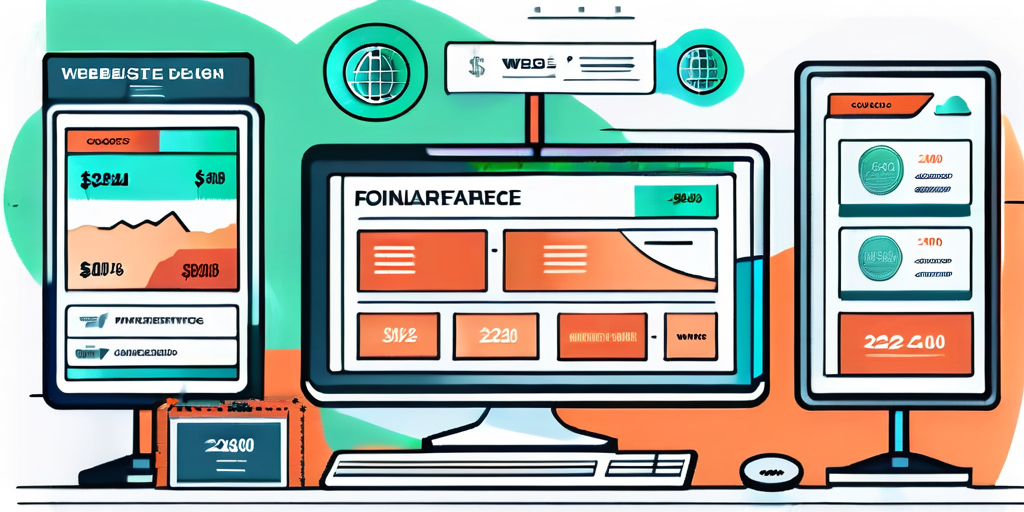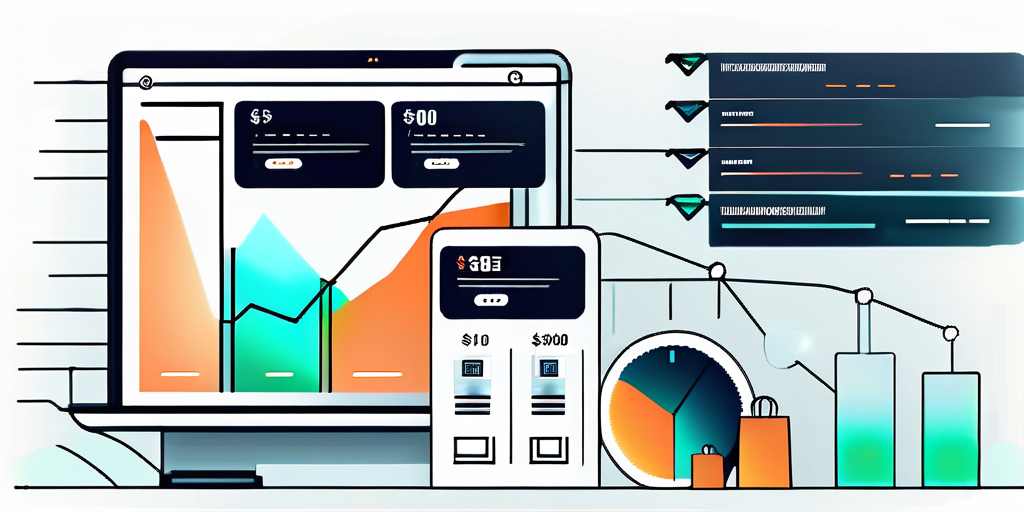Table of Contents
Website pricing in our tech-crazy world can be a wild ride, but we’ve got this! Having a professional and visually appealing website is essential for every business. As technology continues to evolve, so does the cost of website design. If you’re wondering about the potential cost of designing a website in 2024, this article provides some insight.
What Affects Website Project Costs & The Overall Website Price?
Several factors come into play when determining the cost of a website project in 2024. One of the most significant factors is the complexity of the website design. An essential informational website with a few static pages will be much cheaper than a complex e-commerce website with numerous features and functionalities.
Additionally, the amount of customization required affects the price. Pre-designed templates are cheaper, while custom designs require more time and effort from the web designer, making them more expensive.
Another crucial factor influencing website project costs is the level of interactivity and functionality desired. Websites that require advanced features such as user login systems, search functionality, and interactive elements like maps or virtual tours will incur higher development costs. These features require more time to implement and demand more expertise from the web development team.
Moreover, the content management system (CMS) choice can impact the website price. Popular CMS platforms like WordPress or Shopify offer various plugins and themes that can streamline development, potentially reducing costs. On the other hand, opting for a lesser-known or custom-built CMS may result in higher expenses due to the need for more extensive coding and customization.
Items That Determine Website Cost:
1. Design: The design elements, including layout, color scheme, and graphics, can impact the cost. A well-designed website that aligns with your brand identity is crucial for making a positive impression on visitors. Design is not just about aesthetics; it also plays a significant role in user experience. A user-friendly design can enhance navigation and keep visitors engaged for extended periods. Additionally, responsive design, which ensures your website looks great on all devices, is a must-have in today’s mobile-driven world.
2. Development: The backend development work that goes into creating a functioning website can vary in complexity. Custom coding or integration with other systems may increase the cost. Development is the backbone of your website, responsible for ensuring everything works seamlessly. Factors such as site speed, security, and scalability are all influenced by the development process. In the long run, investing in robust development can lead to a more stable and reliable website.
3. Content Creation: Compelling and informative content is essential for engaging users. It can increase the overall cost if you need help with content creation, such as copywriting or graphic design for images and videos. Content is king in the online world, crucial in attracting and retaining visitors. High-quality content informs entertains and boosts your search engine rankings. Incorporating a content strategy into your website development plan can set you up for success.
4. Features and Functionality: Special features like contact forms, chatbots, or e-commerce capabilities can add to the cost. The more intricate these features are, the higher the price tag. Features and functionality enhance the user experience and can set your website apart from the competition. However, balancing adding valuable features and keeping the website streamlined and easy to navigate is essential. Prioritizing features that align with your business goals can ensure a return on your investment through increased user engagement and conversions.
Cheaper Website Alternatives
While custom-designed websites provide unparalleled flexibility and functionality, they may not fit every budget. Fortunately, there are alternative options available:
- Website Builders: Platforms like Wix, WordPress, and Squarespace offer easy-to-use templates and drag-and-drop functionality. These solutions are cost-effective and ideal for small businesses or individuals who want a simple website.
- Pre-designed Templates: Many design agencies offer pre-designed templates that can be customized to match your brand. These templates are cheaper than fully custom designs but provide a professional look.
- DIY Approach: With web design experience, you can build your website using online tools and resources. This can be the most cost-effective option but may require significant time and effort.
Exploring these cheaper website alternatives can be a great way to establish an online presence without breaking the bank. Website builders, in particular, have become increasingly popular due to their user-friendly interfaces and affordable pricing plans. They often include features like built-in SEO tools, e-commerce capabilities, and mobile responsiveness, making them a convenient choice for those looking to create a website quickly and easily.
Additionally, when opting for pre-designed templates, you can benefit from the expertise of professional designers who have crafted visually appealing layouts that can be tailored to suit your specific needs. These templates often come with support options and updates, ensuring your website remains functional and up-to-date without extensive technical knowledge. By leveraging these resources, individuals and businesses can save time and money while achieving a polished and professional online presence.
Website Maintenance Costs Post-Launch
A common oversight when budgeting for a website project is the ongoing maintenance costs. Once your website is up and running, continuous updates, security monitoring, hosting fees, and domain renewals are necessary expenses. It’s essential to consider these costs when calculating the overall budget for your website.

Security monitoring is another essential aspect of website maintenance. Cyber threats constantly evolve, and robust security measures are vital for safeguarding your website and data. Regular security scans, firewall protection, and malware detection are all part of a comprehensive security monitoring strategy that can help prevent cyber-attacks and unauthorized access to your website.
Website Marketing Costs
Designing and developing a website is just the first step. You must invest in website marketing to drive traffic and achieve your business goals. The cost of website marketing varies depending on the strategies employed:

Creating a comprehensive marketing strategy for your website involves understanding your target audience, analyzing competitors, and identifying the most effective channels to reach potential customers. It’s essential to consider the long-term benefits of investing in marketing that can increase brand awareness and customer engagement.
- Search Engine Optimization (SEO): Optimizing your website for search engines involves keyword research, on-page optimization, content creation, and link building. The cost of SEO services may vary based on the scope of work and the competitiveness of your industry. Investing in SEO can help improve your website’s visibility in search engine results, driving organic traffic and reducing reliance on paid advertising.
- Pay-Per-Click (PPC) Advertising: Running advertising campaigns through platforms like Google Ads or social media can effectively drive targeted traffic to your website. The cost will depend on your budget and the competitiveness of your chosen keywords. PPC advertising offers a more immediate way to generate traffic and leads, allowing you to control your budget and target specific demographics.
- Social Media Marketing: Engaging with your target audience through social media platforms requires consistent content creation and community management. You can either manage your social media accounts yourself or hire a professional. Social media marketing can help build customer relationships, increase brand loyalty, and drive website traffic through engaging posts and promotions.
How We Determine Website Pricing
Understanding how web design agencies determine pricing can help you make informed decisions. Here are some common factors considered when setting website prices:

- Project Scope: The complexity and timeframe of the project play a significant role in determining the price. Larger projects with more extensive requirements will naturally cost more.
- Experience and Expertise: Experienced web designers specializing in certain industries or having a proven track record may charge higher rates than beginners.
- Additional Services: Some agencies offer services beyond website design, such as branding or digital marketing. These additional services may be bundled into a package or priced separately.
- Client Requirements: Each client’s needs and goals will affect the cost. Tailoring the website to meet your unique requirements may increase the price.
Consider these factors as you plan for your website design project in 2024. Investing in a well-designed and functional website can yield significant returns for your business. It’s essential to balance your budget and the desired features to create a website that meets your needs and customers’ expectations.
Another crucial factor that web design agencies consider when determining website pricing is the level of customization required. Customization involves tailoring the website to reflect your brand identity and unique selling points. The more customized features and functionalities you require, the higher the cost is likely to be. This personalized approach ensures that your website stands out from competitors and resonates with your target audience.
Furthermore, the technology stack in developing your website can impact pricing. Different technologies and platforms have varying levels of complexity and scalability. For instance, a website built on a simple content management system (CMS) like WordPress may have a lower upfront cost than a custom-built website with advanced functionalities. Understanding the technology options available and their implications on performance and maintenance can help you make informed decisions when budgeting for your website project.



